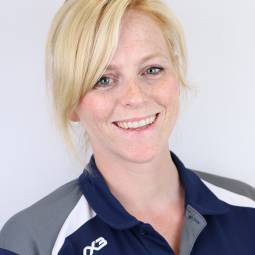
Mrs Kathryn Fishlock
Physiotherapy manager
- Physiotherapy
- Self-pay/Insured
Muscle strain is a common type of injury which occurs when the muscle fibres stretch or tear. It is often referred to as a ‘pulled muscle’ and happens when the muscle is stretched beyond its limits or is forced to shorten or contract too quickly.
A muscle strain can be mild (Grade 1), moderate (Grade 2) or severe (Grade3).
The main causes of a muscle strain are sporting activities and accidents, for example, lifting something incorrectly or which is too heavy. You are more likely to develop a muscle strain in certain circumstances. These include:
The symptoms of a muscle strain will vary depending on the severity of the injury and the extent of the damage to the muscle.
Symptoms of a muscle strain can include:
The aims of treatment will depend on the symptoms. The main aims are to reduce pain and swelling and to maintain movement and strength of the muscle/s affected. It is important to try and help your injury to heal and to protect the muscle from further damage. Many minor strains will respond to the following PRICE principles of treatment:
For the first 72 hours after a muscle strain you should avoid HARM. This means you should avoid:
If your injury doesn’t improve it is important to seek advice from your GP or from a physiotherapist.
If you have a Grade 3 muscle strain and your muscle is completely torn, you may need an operation to repair it.
It is important to make sure your injury is fully healed before you start exercising again. If you return to exercise too soon, you’re more likely to have another muscle strain injury.
At the Centre for Clinical Physiotherapy we offer a wide range of services, knowledge and expertise to effectively treat and manage muscle strains. Treatments are delivered by highly skilled and experienced physiotherapists who are passionate about delivering a quality service and the best possible results for you.

Our transparent pricing and bespoke packages allow you to pay for the treatments and services you need, when you need them.

Many of our dedicated consultants have partnered with insurance companies to give you peace of mind with your health.
For more information call one of our friendly patient advisors or book online using the button below.